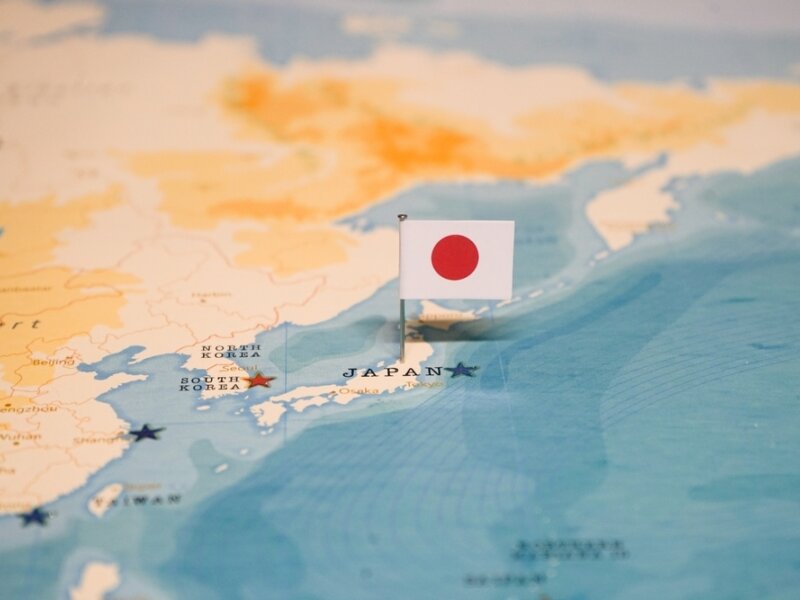The Importance of Being Niger
Profiting from a favorable diplomatic conjunction and its strategic position, Niger is a key partner for Europe in the Sahel. Yet, President Bazoum needs international support for the country’s internal problems emerging from the threat of several jihadist groups.

During the last Africa Security forum, Niger took the center stage. President Mohammed Bazoum expressed the need for change on counterterrorism in the Sahel, underlining the necessity to correct state’s disfunctions to solve the conflicts in the region. Bazoum talked of “jihadization of crime” and “criminalization of jihadism”, stressing how countering organized crime must be part of any counterterrorism strategy.
Only few years ago Niger was considered as the epitome of statehood and economic issues in Africa: poor, with a low human index, fundamentally irrelevant. Today instead, with thousands of troops involved in counterterrorism operations, military personnel from 10 different countries on its soil, a great availability of energy sources, and a newly democratically elected President, former Minister of Interior Mohammed Bazoum, the country is aiming to take a more prominent stage in the geopolitics of Africa. The instability affecting both North Africa and the Sahel has put Niger in the middle of many turbulences, but it has also increased its geopolitical relevance for the rest of the world. Hit by attacks from different Jihadist groups, Niamey today plays a crucial role in counterterrorism initiatives, as demonstrated by the claims by US Ambassador to the UN Linda Thomas-Greenfield during the United Nations Security Council meeting of October 25th, who openly defined Niger as “one of the United States closest allies in combating violent extremism”.
Niger is the seventh contributor to the United Nations’ MINUSMA mission in Mali, it is part of the G5 Sahel, the main intergovernmental forum of the region, and of the Multinational Joint Taskforce (MJTF) that is currently fighting Nigerian jihadist groups in the Lake Chad region. Nigerien authorities are aware of their country’s relevance on the central Mediterranean migration route and most notably of the importance of Agadez as a structural node in this context. For this reason, since 2016, Niger has become one of the five African countries with which the EU has established formal migration partnerships, in the context of the EU Migration Partnership Framework (MPF) and between 2014 and 2020, the EU has supported Niger with over one billion euros on the contrast of irregular migration and human trafficking.
Niger’s renewed ambitions are linked to the new leadership of President Bazoum, political heir of his predecessor Mahamadou Issoufou, who aims at leaving its mark in the country’s history while maintaining a certain degree of continuity with the past. Under the new leadership, Niamey has manifested its willingness of achieving a more proactive posture and gaining more independence in terms of tools and strategies to counter its security issues. Two key changings have emerged evidently in relation to the contrast to terrorism. Firstly, Bazoum in person stressed the importance of improving dialogue and mediation between pastoralist and farmer communities, enhancing the role of the state through delivery of basic services, thus making recruitment harder for jihadist organizations. Secondly, the new government announced an ambitious investment plan of 5 billion dollars to modernize its army and Bazoum believes that such improvement process is a key step to forge a new type of relationship with European partners. This new posture was further assessed by the president during his visit Germany in July 2021, when he claimed how Niger does not ask Europe to solve its problems, but it expects technological assistance to implement its own solutions.
This new approach to regional security is also a reflection of the Niger’s new geostrategic ambitions. In fact, the recent diplomatic turbulences in the Sahel represent a game-changer for Niamey’s role within EU-Africa relations. This is particularly the case following Mali’s military coup of last August, and the consequent worsening of the diplomatic relationships between Bamako and Paris. The overthrow of Mali’s transition government has pushed Paris to accelerate the process of recalibration of its military presence in the region decided during the early 2020 G5 meeting in Pau and which aims at making of Niger its main military hub in the Sahel. This shift has provoked a worsening in the relations between Mali and Niger, but despite this discontent, the last G5 Sahel summit of July 2021 has confirmed the strengthening of the partnership between Niamey and Paris. During the meeting in fact, Bazoum was the only Sahelian head of state personally received by Emmanuel Macron in Paris where the two leaders have attended the meeting remotely. Following France’s shift, other European countries have strengthened their links to Niamey. Few weeks after the G5 meeting, president Bazoum met with Angela Merkel in Berlin, where the chancellor explicitly promised a continued support for Niamey.
From an economic perspective, Niger wants to return to its precolonial pivotal role in the trade between the Sahel, the Mediterranean and the Middle East. For instance, Algeria has recently relaunched the Trans-Sahara Gas Pipeline Project, which should originate in Nigeria, pass through Niger, and then link to the European markets. Despite some observers have expressed skepticism over the feasibility of this initiative, its revamping is a signal of the renewed consideration of Niamey within the Maghreb diplomatic and commercial circles.
More importantly, the new leadership in Niamey wants to use the country’s remarkable availability of energy resources, especially uranium, to internationalize its economy and improve its energy supply for the domestic market. Niger’s uranium fields have played a crucial role in its relationship with France since both Paris’ civil nuclear energy, as well as part of its nuclear force de frappe, were built thanks to Nigerien uranium. Indeed, while for many years this mineral was extracted mainly from France’s AREVA, the recent birth of the Sociéte des Mines d’Azelik (SOMINA) has represented the formal entry of Chinese and Korean companies in the local mining industry. Niamey also aspires to develop its green energy sector as demonstrated by the launch of the new solar park of Gorou Banda, one of the key projects to cut Niger’s dependence from fossil fuels.
Despite these ambitious plans and favorable conditions, there are many challenges ahead for Niger. As claimed by president Bazoum himself, corruption continues to undermine the proficiency of its public authorities as well as the quality of the state-citizens relationship, and youth access to education must be improved. Moreover, the consequences of the COVID-19 pandemic had significant implications for the population. Up to date, the country has vaccinated only 457.000 people on a population of 24 million (1.9% of the population). Moreover, the country lacks the medical equipment necessary to heal the ones affected by the pandemic, and the general situation of the outbreak has been worsened by the difficulty in tracking the virus and by the presence of remarkable flows of irregular migrants who cannot respect the protocols to avoid the spread of COVID.
In conclusion, in comparison to the past, the geopolitical balance is favorable to Niamey’s ambitions for achieving a regional leading role in the region, as well as for its domestic aspirations. In an increasingly unstable region, the country will use its presidential term within the G5 Sahel next year to enhance its image as trustworthy and indispensable partner for stability, but also to advance its national agenda. It is certain that Niger is set to be a key player for global players’ interests in the time to come, and international partners should be prepared to do their part as well.



